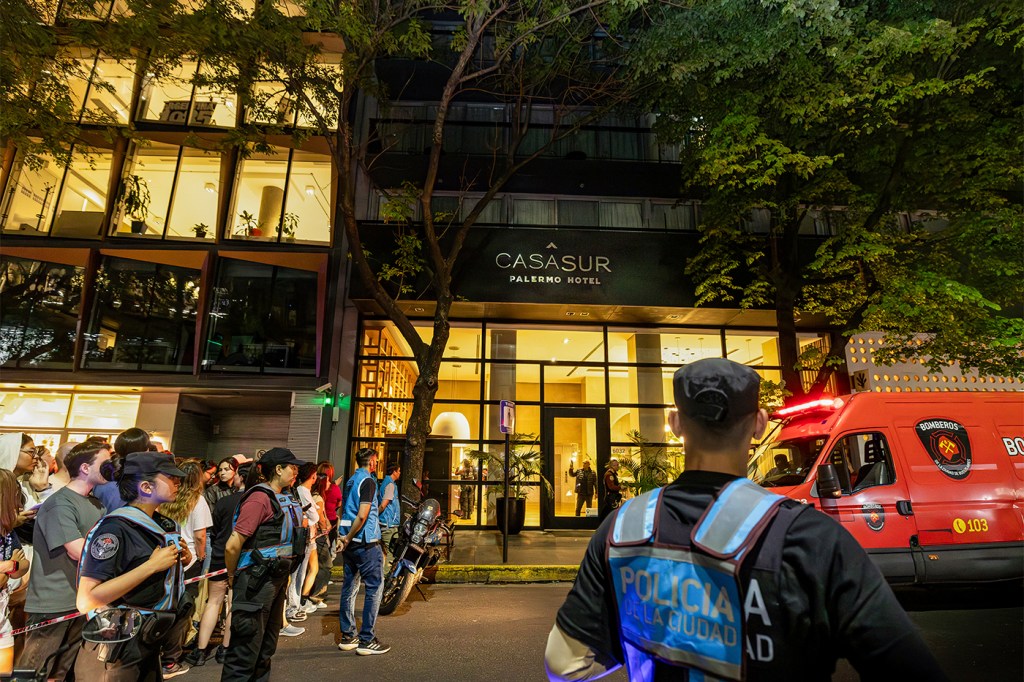TMZ posted a photo of Liam Payne’s body hours after his death. What are journalism standards today?
TMZ traffics “in rumor, hearsay and gossip. That’s sort of their market. Edgy, salacious, unsourced, premature stuff, that’s their brand,” says Northeastern journalism expert John Wihbey.

Barely hours after One Direction singer Liam Payne fell to his death from a hotel balcony in Argentina, TMZ had an article up with photos of the late star’s body.
TMZ cropped the photo so viewers could only see parts of Payne’s body, but the outcry was so strong that the outlet later took down the photo.
This is hardly the first time the outlet has created controversy for its coverage of celebrity deaths. It was criticized for running details about the suicides of Linkin Park singer Chester Bennington and Swedish DJ Avicii, as well as for publishing news of the death of Kobe Bryant and his daughter before the family was notified.
While these practices spark outrage, they are technically legal in the United States under the First Amendment, which protects the freedom of the press, according to John Wihbey, an associate professor of journalism at Northeastern University.

“There are really very few limits on what publishers can publish,” Wihbey said. “There are a few constraints about places where there would be a reasonable expectation of privacy, but functionally, there just really aren’t limits in the United States under criminal law.”
This may explain why TMZ has skirted legal woes despite its dubious practices, but it does not mean its practices are ethical.
“They traffic in rumor, hearsay and gossip,” Wihbey said. “That’s sort of their market. Edgy, salacious, unsourced, premature stuff, that’s their brand.”
In the most recent case, TMZ originally ran photos cropped to show only Payne’s arm and abdomen. TMZ’s employees wrote that they obtained photos showing Payne’s body on the wooden deck at the hotel where he fell, but decided not to show the entire body, focusing instead on his identifying tattoos. They also ran a photo of the police tent later used to conceal Payne’s body.
Featured Posts
The story, which ran within hours of Payne’s death, immediately drew backlash from fans, journalists and celebrities, including singer Alessia Cara.
The death of a public figure is bound to get media coverage, Wihbey said, particularly when the figure dies in public like Payne did. But TMZ has violated what Wihbey called “soft norms” by not waiting to publish a story until a family was notified or running photos of the body.
Meg Heckman, an associate journalism professor at Northeastern University, added that in the case of Payne’s death, many publications would opt to not publish photos of his body because the images had no value except to shock.
“The simplest way that I think about ethical decision-making in journalism is maximizing truth telling while minimizing harm to vulnerable parties,” Heckman said. “If the truth that you are telling is earth-shattering, if it is something that is going to fundamentally shift the way that the public thinks about something, you may decide that taking some risk of harm to vulnerable parties makes sense.”
Heckman said an example of this might be publishing photos of casualties from a geopolitical conflict to drive home the seriousness of a situation, as many news organizations did during the wars in Ukraine, Iraq and Afghanistan.
“There are other circumstances where the information a news organization is publishing is just salacious, designed to drive clicks, and has no real societal value,” she added. “In that case, any harm to a vulnerable party in my opinion is not OK. … Frankly, in this situation, I see no reason beyond salacious clickbait for TMZ to have posted this particular image.”
While TMZ might live another day without facing legal ramifications for its practices, Wihbey said TMZ is not doing much to inspire trust in the media.
“I am certain that the general public’s impression of the U.S. press are hurt by the really outrageous things that edgier outlets like TMZ do,” Wihbey added. “The U.S. public holds the press in very low regard right now. … This behavior probably does not help an otherwise pretty sorry situation.”











